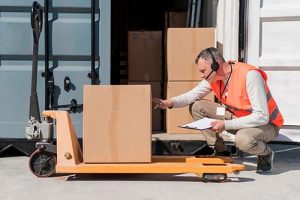The origin of goods is fundamentally important in trade between the European Union and non-EU countries, as tax treatment, restrictions, and controls depend on the customs origin of the goods.
The Union Customs Code outlines the principles for determining origin—both non-preferential and preferential—in Title II, which refers to the Delegated Regulation for the concept of origin and cumulation, and to the Implementing Regulation for certification and control procedures.
Legal references:
- Articles 59–68 of EU Regulation No. 952/2013 – UCC
- Articles 31–70 and Annex 22-01 of Delegated Regulation (EU) 2015/2446 – DR
- Articles 57–126 of Implementing Regulation (EU) 2015/2447 – IR
Non-Preferential Origin
The principle of non-preferential origin, under Article 60 of the UCC, is based on the concepts of wholly obtained products and last substantial transformation or economically justified processing.
Wholly obtained products are clearly originating from a specific country, such as products of the soil or subsoil—for example, animals, plants, or minerals.
Substantially transformed products are those obtained in a country through “the last substantial and economically justified processing or working, carried out in an enterprise equipped for that purpose, resulting in the manufacture of a new product or representing an important stage of manufacture.”
Article 31 DR lists wholly obtained products, while Article 33 DR defines the anti-avoidance rule.
Articles 57 to 59 IR, which apply to all goods in general, cover the provisions on certificates of origin, administrative cooperation, and post-clearance verification for products subject to special non-preferential import regimes.
Annex 22-01 DR, “Introductory Notes and List of Working or Processing Operations Conferring Non-Preferential Origin,” provides, via introductory notes and list rules, an organized (harmonized system-based) listing of goods and the corresponding operations that do not confer preferential origin to a product.
Preferential Origin
Article 64 of the UCC establishes the rules for obtaining preferential origin within EU agreements or under unilateral measures, as well as cases of temporary derogation.
Articles 37 et seq. of the DR set out the rules for the Generalised Scheme of Preferences (GSP).
Articles 41 to 58 DR and Articles 70 to 111 IR contain the rules for GSP origin, GSP cumulation, and the REX system, with systematic distinction from the registration of exporters outside the GSP framework of the Union (Article 68 IR).
Annexes:
- 22-03 DR: Introductory notes and GSP preferential list rules
- 22-04 DR: Products excluded from regional cumulation
- 22-05 DR: Processing excluded from GSP regional cumulation for textile products
- 22-11 DR: Introductory notes and list rules specifically dedicated to unilateral preferential regimes under Article 61 DR.
Authorized and Registered Exporters
Authorized Exporter status is an authorization issued by the Customs Agency that allows economic operators, subject to verification of requirements, to declare preferential origin directly on the invoice or other suitable commercial document—regardless of the value of the exported goods. Except in special cases, there is no longer a need to request the issuance of the EUR.1 certificate. This enables recipients in partner countries (with which the EU has free trade agreements) to benefit from preferential treatment, i.e., tariff reductions or exemptions on imported goods.
New-generation Free Trade Agreements are concluded by the EU with the aim of simplifying procedures and pursuing the “paperless” customs project introduced by the UCC. These simplifications require that proof of preferential origin must consist solely of an invoice declaration (or other commercial document).
Under these new agreements, EU exporters who wish to declare the preferential origin of their goods must register in the EU’s “REX” (Registered Exporter) database. This registry includes exporters deemed reliable by customs authorities in managing the attribution and declaration process of preferential origin.
Both authorizations require companies to remain constantly updated. Customs authorities periodically carry out audits at the premises of Authorized and/or Registered Exporters to verify continued compliance with requirements.



